Pragmatic Progressive: Mary Washington’s history-making run for Baltimore mayor
With the potential to become the city's first LGBTQ mayor, State Senator Mary Washington is offering Baltimore a break from politics-as-usual

“I characterize my life’s path as ‘I look for opportunities to do good,'” says Maryland State Sen. Mary Washington (D-Baltimore City). “And I know that might sound corny, but I generally just look at how I can help make the world a better place for myself, and also for the people that I care about. And then, also, how can I learn?”
It’s a mantra that’s followed Washington, 57, throughout her life. Born and raised in Philadelphia as the oldest of six children, her quest for intellectual stimulation took her to three different colleges, switching from becoming a K-8 teacher to completing an ethnographer research fellow, and ultimately finishing her graduate degree at Johns Hopkins. And it wasn’t planned — instead, Washington “took the opportunities that were placed before me and then made that assessment of, ‘Can I do good in this context and will it support my overall goal?'”
Her desire to effect positive change came to a head in 2005, when Washington was bitten by the political bug and mounted a campaign for state delegate. While she wasn’t successful in that race, it did bring one life-changing benefit: in the midst of that campaign, Washington met Jodi Kelber-Kaye, her partner, and the two began a relationship in February of 2008.
Two years later, one of the incumbent delegates had retired and Washington mounted a second — and this time, successful — bid to represent Maryland’s 43rd District, becoming one of six out LGBTQ lawmakers in the House of Delegates and Maryland’s first out black LGBTQ legislator. She served for eight years before being elected state senator in 2018, besting her incumbent opponent by about 500 votes, and again making history as Maryland’s first openly LGBTQ state senator of color.
“For me, it’s always been about the work and not the position,” says Washington. “Prior to running for delegate, I was my Community Association President. So I have this history of stepping up to do the work, and being trusted by other people to lead initiatives. I always look for opportunities to do that.”
Such is the lens through which she views her most recent endeavor: seeking to become Baltimore City’s next mayor. Disgruntled with numerous scandals that have plagued city leaders in recent years — most notably former Mayor Sheila Dixon, convicted in 2009 for misappropriating gift cards that were intended for poorer city residents, and Mayor Catherine Pugh, who resigned last year and pleaded guilty to charges of conspiracy and tax evasion after organizations allegedly purchased large quantities of her self-published children’s books in exchange for contracts with the city.
Washington announced her mayoral bid in November, becoming one of 24 Democrats seeking the nomination in the April 28 primary. Her chief rivals include Dixon, the former mayor; City Council President Brandon Scott; current mayor Bernard “Jack” Young, who succeeded Pugh; former Baltimore City Police Department spokesman T.J. Smith; and former Maryland Deputy Attorney General Thiruvendran Vignarajah.
“I should say I really appreciate all of the other people that are running, because every single one of them, what they’re saying by their presence is they’re not happy with the way things are,” Washington says. “If they were happy with the establishment, you would not have more than 20 people running.”
Should she be elected, in addition to being the first LGBTQ mayor of Baltimore, Washington will face daunting problems in a city that never quite recovered from the unrest and riots that struck the city in the wake of the death of Freddie Gray, which exposed long-simmering tensions between city residents and the Baltimore Police Department. Crime has spiked in recent years. Corruption scandals have embarrassed city officials and scared away potential business partners. The city’s education system is underperforming compared to the rest of the state. It’s a thankless job, and yet one that Washington approaches with the attitude of a happy warrior.
Casting her candidacy as one promising empowerment of city residents, Washington stresses the themes of truthfulness, transparency, accountability, and the public’s right to know how their government is working on their behalf. A self-described “pragmatic progressive,” she frames herself as an outsider who’s not beholden to the city’s political class, noting that she has ruffled plenty of feathers within the state’s Democratic establishment and clashed with her party leaders since first being elected to office a decade ago.

“I’ve always found my own way, and I’ve been fortunate that I’ve been able to find allies along the way and form alliances with people who themselves do not feel engaged as a part of the process, or feel that they’re not valued or that they’re taken for granted,” she says. “I’ve not been asked by the party to run for office. I didn’t inherit the contributors from the person who occupied the position before me. I wasn’t blessed, I had to just work hard. Everything I’ve gotten, I’ve earned and fought for. And I think that’s also why I’m running, because I identify with so many people in the city that just work hard every day and whose value is not really being fully appreciated.”
METRO WEEKLY: Why did you enter politics?
MARY WASHINGTON: I wanted to help make the world a better place. I decided to run for the first time in 2005. I had been the demographic consultant for the secretary of state’s office, and it was during redistricting and we traveled around the state and presented the redistricting plans and I got to hear the legislature debate various issues. I’ve always been interested in government and how we make decisions and policy. And I’ve always been on the volunteer side of registering people to vote, taking people to the polls, writing letters, organizing.
I was president of the Graduate Student Association in graduate school. I was president of the Commonwealth Association of Students, which is a student union for the State System of Higher Education in Pennsylvania, as an undergraduate. When I was at IUP, I was a member of “Students for Gay Rights,” because none of us were out. This was 1980. There was the Black Student Union, there was an organization called Women for Change, and then there was an environmental student organization. And so I was a member of all of those groups. And there came a time when this Commonwealth Association of Students organization, there was an election and we formed a Progressive Student Alliance and ran for the offices and took over this Commonwealth Association of Students on our campus at IUP.
And then I formed a similar coalition and we ran for and got elected to the statewide offices. The state public colleges did a mid-semester tuition increase of just $75, and we sued and organized students, and we got them to rescind it because they hadn’t properly notified students.
So I’ve always been involved in social change and engaging people and organizing, but had never really contemplated doing it as an elected official. But when I had that experience as a policy person working in the secretary of state’s office and then being exposed to the legislative process, I thought, “Wow, how great would it be to be able to actually vote on and not just lobby for what I believe in, but also be a part of shaping policy and shaping priorities?”
That’s when I decided to run, because I felt one of the three delegates representing our district was out of step with the community. She didn’t support a woman’s right to choose. When it came to issues around the death penalty, she supported that. And so I felt that I was more in line with what the values of the district were. So I ran, and my constituents at that time did not take me up on my offer to be their delegate. But we came very close. And I ran again and won in 2010.
MW: What are the issues that you’ve really taken the lead on?
WASHINGTON: What I really love about the 43rd District is that we are wholly representative of the entire city. It’s one of the most economically, racially, educationally diverse districts in the city, so we have everything from bombed-out storefronts to million-dollar mansions. We have communities that are disproportionately white and segregated and African-American and segregated, and then we have communities like this that are integrated racially and economically. And we have the parks and recreation centers and schools — we’ve got four universities here. So we’re very much interested in education. City services, that gets a lot of what people are concerned about. Certainly public safety, I would just be wrong to not say people are concerned about what it takes and what we need to do to have a safe city, but also have a city that works.
I’ve taken the lead on a number of issues. The first standalone bill I introduced that was tough was ending the practice of shackling pregnant detainees. And to pass that bill, I had to run against the establishment and build a strong coalition to succeed.
When I learned that women who were in labor and delivering in our correctional facilities were restrained while they were giving birth, I was horrified and could not imagine that this was something that was legal. The whole concept that a child in Maryland would come into this world with their mother restrained, to me, was symbolic of what’s wrong with our criminal justice system and the lack of humanity with which they were treated. It turns out that at the federal level it had been banned. But when I started this work, only 18 states had banned the practice. So I worked with a coalition of returning citizens and women’s organizations and, interestingly, organizations that were interested in the life of the fetus, to ban that practice. It took us two years to get it done.
The bill had actually been introduced in prior sessions, but I built the coalition, and I also switched its focus from a human rights issue, which is how we had originally argued that this was wrong, but that argument didn’t work. So I took another approach and talked to some people that had been doing a lot of research at Amnesty International, looking at war crimes and tribunals. And the people say, “Well, how is it possible that this person is found not guilty when they clearly did all of these things?” And so I spoke to a number of researchers at Georgetown and American and it turned out there’s this psychological thing where, to find someone guilty of an atrocity, we have to admit that we live in a world in which that occurs. And so subconsciously, if the state of Maryland and the legislators accepted that this happened, that would change who they see themselves as, and that would change their belief in the system.
So I switched from a human rights argument to a risk-management one. We called the bill “Healthy Births for Incarcerated Women” and switched our argument to, “Well, what do health professionals need to be able to mitigate the potential for lawsuits or having complications related to a birth?” And that worked and we got that bill done. And so when I think of myself as an elected official, as an organizer, as a person in this world who wants to make change, I know how difficult it is. And because I’m a sociologist, I know the importance of framing, in addition to data and information, and the psychological aspects of why we do what we do, and using that to forward an agenda.
MW: Let’s switch to your upbringing. What was your childhood like?
WASHINGTON: I grew up in West Philadelphia. My mom was a nurse and my dad was a respiratory therapist. They met at Children’s Hospital in early 1960 and got married, and I came along 10 months after they got married. I grew up in a city and in a neighborhood very similar to neighborhoods we have in Baltimore. My siblings and I went to a Catholic elementary school, and I went to a public high school. We had a nice yard, but we played in the street with the neighborhood kids. We had this unspoken rule, like you see in old movies, of “Come inside when the street lights come on.”
One of the things I loved about Philadelphia was the parks. My father would play tennis, so they took us out to the parks. So I continue to have a value and believe that recreation and having a strong park system is really important for young people and that ability to be out and explore.

MW: You mentioned Catholic school. Were you raised Catholic?
WASHINGTON: Yes, I was raised Catholic, but I am now a Presbyterian. When I was looking to find a church where I and my partner at the time could be recognized and have our union blessed and accepted, the Catholic Church was not a place to do that. First and Franklin Presbyterian Church was, and so we joined that, and that’s where we had a “holy union” because we couldn’t get married. That was in 2000. And it was the whole concept of being a more “light” congregation.
The whole idea that religion or that Christianity or the Bible, it’s about discovery and having more light as we increase our understanding, versus this idea that there’s this static view of what is moral and what laws are, was very attractive to me. So we joined that congregation, but I still believe that I am essentially a Catholic girl. I went to Catholic school for eight years and wore a uniform and stood up when the priests or the nuns came into the classroom.
MW: When did you realize your sexual orientation?
WASHINGTON: I can remember as early as first grade having crushes on girls in the classroom and my teachers. Of course, I didn’t have a name for that, but I would have very intense friendships. And then, for lack of a better word, we’d break up and then we’d have another kind of intense friendship. And it wasn’t actually until, I think, I was in seventh grade or eighth grade and people were talking about the all-girls school. So there’s Philadelphia High School For Girls — where I actually ended up going to high school — and someone was commenting about these two girls wanting to go to the prom together. And I remember maybe it was 1975, 1976, and my ears perked up while everybody else was sort of like, “Ew.” And I thought, “Oh, yeah. Okay.”
I remember really distinctly thinking, “I want to go to that high school.” That’s when I first had an inkling of that, as early as 13. And then in high school, coming to that place of understanding that that’s who I am, and I wanted to be in a relationship with women. That’s where I felt my most honest self.
MW: When did you first come out?
WASHINGTON: Well, there’s two coming outs, but first I’ll do this one from high school. I expressed my love to the object of my crush and affection — stereotypically, we were on the softball team — and it was not reciprocated. In fact, I experienced being ostracized from the entire team, because shortly thereafter the entire team knew.
Of course, not too many years later, in college, folks that I knew in high school who were not throwing the ball to me and were calling me names, I’d see at the clubs or I’d see someplace else. So they all came out a little later.
The second one was in junior year with a friend, and it was my first love. And that’s still a really sweet, wonderful story, except that when we went to college, she wanted to have a more traditional life. And so she went somewhere to college and then I went somewhere to college, and I was heartbroken.
MW: How did your family take the news?
WASHINGTON: I was still in high school and I’d come out to my mom and my dad. And my mom was very practical about it. She said, “You’re black, you’re a woman, why do you want to be gay? Your life is going to be hard.” So she was coming from a place of, “It’s already difficult and why do you want to make it more difficult?” And I said, “Well what do I have to lose? If it’s already difficult, I should be who I am.”
I’ve been very fortunate in that [my parents] love me and I know that at the time, their preference was that I have a more traditional lifestyle, but they also knew their daughter and they knew I was happy. So I always felt that I was accepted, and was not kicked out of my home or anything like that. And anyone that I’ve been in a relationship with, my family has been accepting and loving and caring, as they would [with] anybody. The extent to which they accept anybody, they accept them.
MW: Did you engage with the LGBTQ community growing up, in Baltimore and the other cities where you’ve lived?
WASHINGTON: I’ve been [in Baltimore] a long time. I experienced Philadelphia as someone who was not over 21, and so experienced Philadelphia as a young person. And I guess it’s more that it’s a city just like Baltimore — it’s actually very similar. Philadelphia and Baltimore are cities of neighborhoods and they have a downtown area and they have very few women’s bars and much more men bars, and they have organizations that engage in civil rights activities. And they both have health systems that are targeted mostly for LGBT community.
But I would say that a lot of my life has not been lived just as a lesbian or just as African-American lesbian. I’ve had a very sort of cross-cultural, interracial, coalition life. And so my friends, even in graduate school — I guess because of graduate school, I had LGBT friends and non-LGBT friends. So my set was always very integrated.
MW: Let’s talk about your mayoral run. If we look at polls, the number-one issue people cite is crime. And the next issue is public corruption.
WASHINGTON: Absolutely.
MW: You’re running against a former mayor who had her own corruption scandal, the current mayor who stepped in after Mayor Pugh resigned from her scandal, the City Council president, a Baltimore Police spokesman, and a prosecutor.
WASHINGTON: Yes, and they all are part of this history of corruption, of lack of accountability, from which we frankly have to turn the page. That’s what I offer. I offer a clean break from that. And that is why I’m running, because I accept responsibility as a resident of Baltimore, and as someone who deeply loves the city and is committed to us addressing our crime problems and making our city work. I just can’t stand by and allow those who were part of the problem to be the only choices, instead of turning the page and writing a new chapter. That is absolutely why I’m in this race and, to quote one of my favorite idols, Shirley Chisholm, I’m running “unbought and unbossed” and being fully accountable to the needs of the people who I represent.
That’s what I’m offering, building a campaign that really is about engaging citizens, that is about respect and integrity and making a city that works, without corruption. Making sure that we’re doing all those things — keeping the streets clean, keeping the lights on, literally having an education and recreational system that matters. And I have experience doing that. For three years, I was the performance management and accountability specialist for Baltimore housing from 2002 to 2005. To me, the mayor is the manager of the city, the CEO, and the buck stops with the mayor. We’ve not had a mayor that has an impeccable record when it comes to integrity, but the people who know me, know that I have very high standards for myself.
One of my favorite things I like to do is to go to the Waverly Farmers Market. It’s in my old neighborhood and it’s just great, with lots of vendors and all kinds of great things. People there know me, and just yesterday I went to get a cup of coffee and they’re like, “No, we support you for mayor.” And I said, “No,” and she says, “No, it’s only a dollar.” And I said, “No, I’m going to pay.” And I can see where something like that could probably start as “Someone’s being nice, so I’m accepting this gift,” and then it grows into this sense of entitlement.
I don’t have a sense of entitlement when it comes to public office. And five of the candidates in this race have a sense of entitlement. It’s “I should be mayor, because I was,” or “I should be, because I’m supposed to be,” or “I should be, because I’m next in line and everybody’s told me I should be,” and “I should be because I’m better than all the rest of you.”
I’m presenting myself as, “I have these set of skills, these understandings, this sense of integrity and accountability, and I’m asking you to allow me to be your mayor.” That’s a very different posture.

MW: How would you weed out corruption as mayor?
WASHINGTON: I love that the independent audit, the inspector general that we currently have, has done a lot. And so I would raise the profile of that office.
I’ve had experiences where, because I used to manage grants and we would give grants that had sub-grantees, and there would be changes in the requirements and people didn’t know they had to keep or have a receipt. Or they didn’t know they couldn’t spend money on food. And so it’s really about educating people about how to do the right thing. We’re going to do that first. And then if you continue to not do the right thing, then you don’t get the grants anymore.
We also have to address our procurement process, how we do business and how people do business with the city. There’s a lot of people that don’t want to do business with the city because they feel like it’s rigged, that it’s linked to pay-to-play politics. And so I would get rid of that perception by being much more public, having a public hearing on all grants with the city.
MW: Following the death of Freddie Gray and the riots, there was a pullback, by both police and the city’s political class, that’s being cited as a contributing factor to the spike in crime rates in recent years. How would you solve that issue?
WASHINGTON: The first pillar of the public safety proposal is restoring or rebuilding the trust and transparency in the Baltimore City Police Department. It’s in the consent decree from the Department of Justice. We’ve got 21 recommendations, and we need to implement them, and as mayor, I will work with the Fraternal Order of Police, the police commissioner, the communities, the judges, and our monitoring board. There’s a lot of talk about during the former mayor’s term, the city was safer, but there was a lot of unconstitutional policing going on, right? And so now those cases, all those arrests, many of them have been overturned. This is a prime example of how over-arresting and violating civil rights does not keep us safe. However, raising the standards of arrests so that they can stand up in court and be just, does.
Taking the politics out of it and just looking at the facts, a lot was happening during that period. So you had this over-policing and over-arrests, but we were also recovering from an economic downturn. The sequestration out of Washington, D.C., affected Maryland a lot. So we weren’t, as a state, getting the same kind of resources that we had been. So there was an economic component to what was happening in 2014 and 2015, on top of the civil rights and the constitutional issues. It was like a perfect storm.
And there was a message that came from police leadership that “We can’t do what we used to do,” but it wasn’t replaced by “Hey, let’s learn a better way to do our jobs, and have the city’s political class get behind you and give you the resources, the training, the support to do your job.” And so you are right, a lot of folks just stepped away and it left this vacuum. And so then there’s chaos and silos. What has to happen is a recognition of what happened, but I’ll say it again, it is time to turn a page to move forward with the recommendations in the consent decree.
MW: Baltimore has recently been singled out for having some of the highest rates of STDs, particularly syphilis, gonorrhea, chlamydia, among major cities.
WASHINGTON: Apparently Baltimore County rates are higher than our rates. But yes, they are high.
MW: What would you do to try and lower infection rates?
WASHINGTON: The health department is already a cabinet level position, but I would raise the profile of that department, and enhance their research division, enhance their outreach department and their funding. The research tells you that education and intervention are important to addressing the problem. That means we need education in the schools, education in the senior centers, education everywhere to really take this on. We’ve raised the awareness around lead poisoning, and it’s been really successful. We can do the same thing with STDs.
There are multiple intervention points. So certainly the schools, but getting back to where I said establishing community health centers on corners, and places where people can walk in and get information. We need to figure out, what do people need? To me, it shouldn’t just be about prevention, where, “Here’s some condoms, here’s birth control.” But really getting into opportunities for peer education, helping our young people make better decisions about when they should and if they should become sexually active. We also have to engage the religious community on this. We have to engage our public health community on this. This comes back to breaking down the silos.
When people say, “If you get elected and you’re mayor what would you like to see?”, I would like to see the breaking down of our silos and that we’re working together across agencies, across neighborhoods, across levels of government. We will still have a lot of the challenges that we have today in three years. But our approach should be that we’re all in this together.
MW: In recent years, Baltimore has had a number of high profile transgender murders. What can be done to protect transgender people, and make sure that they don’t have to resort to survival sex work, or can better access housing and support?
WASHINGTON: It’s the same approach to when we’re looking at young people who are ending homelessness and who are engaging in survival work in any range — very specific training and insistence that everyone’s safety is valued. That means bringing affected communities to the table, and working very strategically in that community to say what works.
There’s this great non-profit organization I want to lift up called Safe Haven that’s in Baltimore. And it does specifically the type of [LGBTQ] outreach that you’re talking about. And they have been desperately trying to get funding from the health department. They’d gotten some Ryan White grant money, but there are real opportunities. We should be fully funding and supporting their desire to have housing and supportive services. And they’re not getting that. But if I were mayor, Safe Haven would.
It’s that type of thing. There are people who are in this city right now who have the answers, and who are working hard with very little support. And as mayor, I will support those activities.
For more information on Mary Washington’s campaign for mayor, visit www.marywashingtonforbaltimore.com.
Mary Washington for Baltimore campaign ad:
Support Metro Weekly’s Journalism
These are challenging times for news organizations. And yet it’s crucial we stay active and provide vital resources and information to both our local readers and the world. So won’t you please take a moment and consider supporting Metro Weekly with a membership? For as little as $5 a month, you can help ensure Metro Weekly magazine and MetroWeekly.com remain free, viable resources as we provide the best, most diverse, culturally-resonant LGBTQ coverage in both the D.C. region and around the world. Memberships come with exclusive perks and discounts, your own personal digital delivery of each week’s magazine (and an archive), access to our Member's Lounge when it launches this fall, and exclusive members-only items like Metro Weekly Membership Mugs and Tote Bags! Check out all our membership levels here and please join us today!






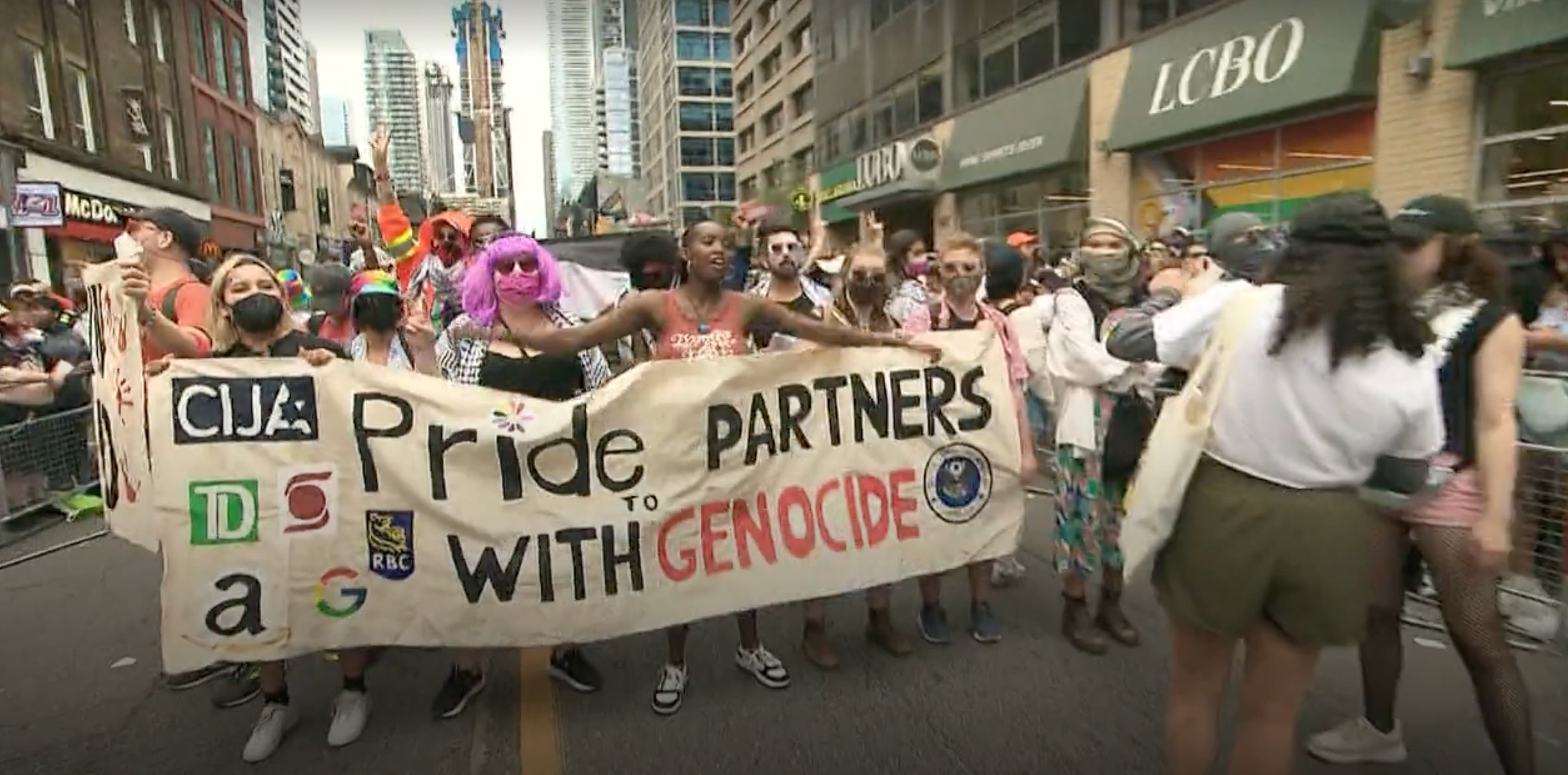
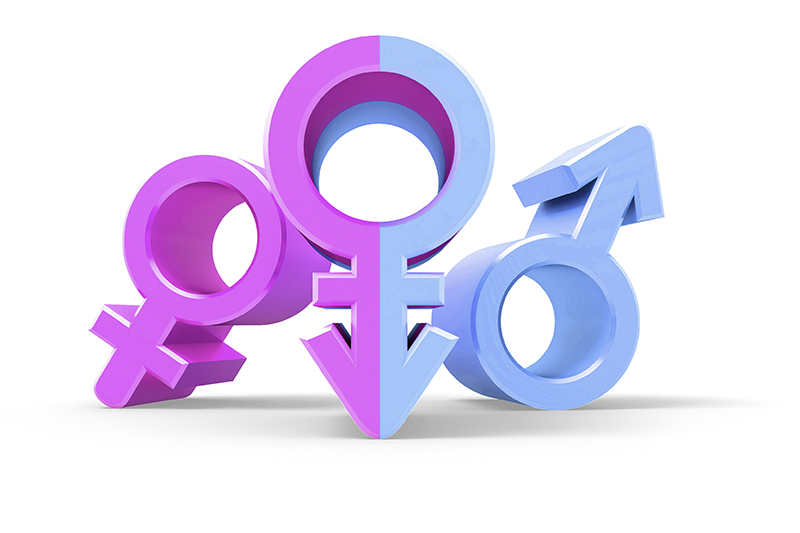
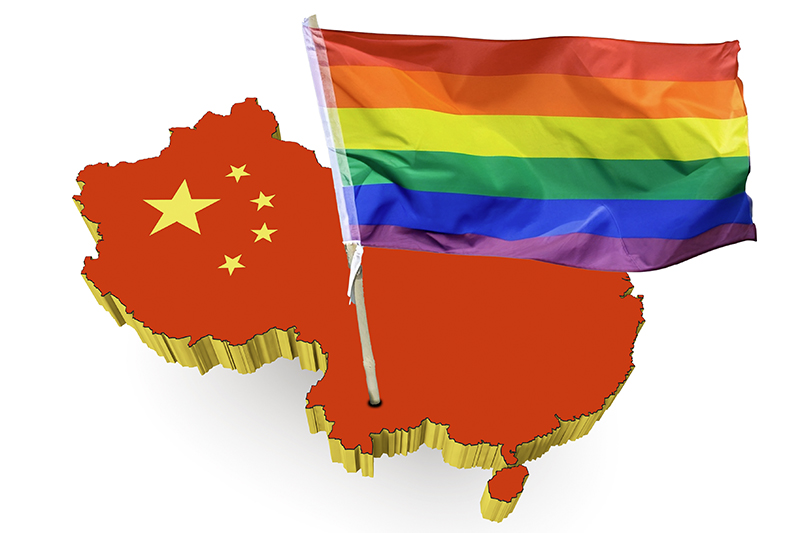














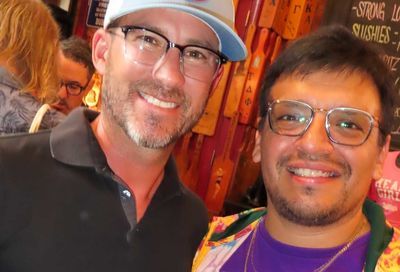
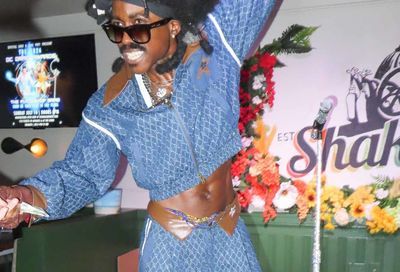
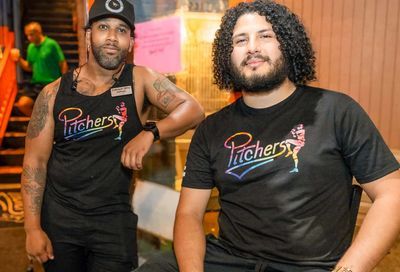
You must be logged in to post a comment.